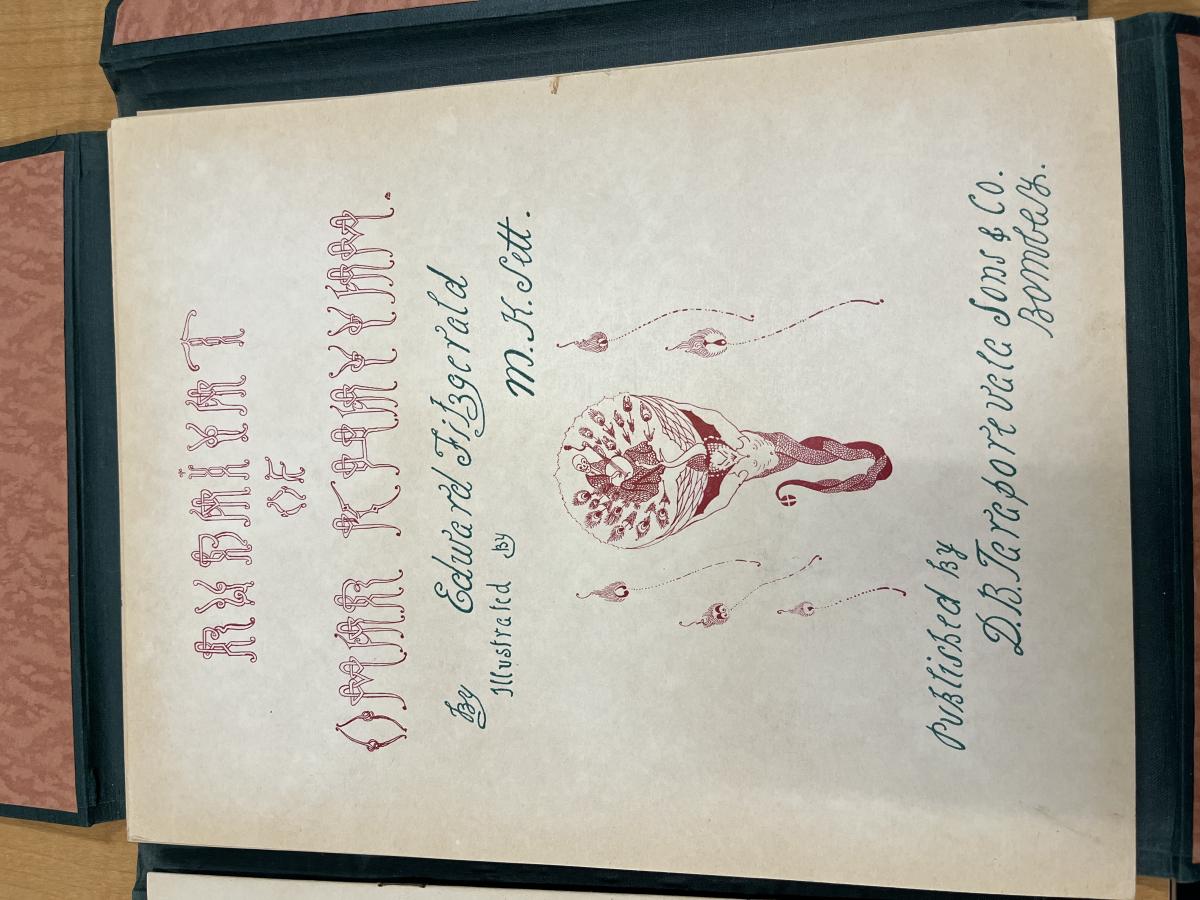My Dear Friend,
The city of Bombay holds a particular allure—the robust Eastern adornment pervades the streets, and the air is incensed with something familiar, yet altogether mysterious to my subdued English palate. Though I consider myself above such cheap attractions and loose experiences many travelers find in the East, I was surprised to discover, on my walk this afternoon along the shopping district, a hidden gem tucked in the corner of a bookstore window. I was pulled to it, as if an invisible hand were guiding me towards it, and what I saw deeply moved me. Why, it was a copy of your beloved Omar, in color and presentation quite foreign to the texts I see you bring to your club meetings.
Upon further inspection, not only did the presentation of the ornate folio reveal to be more beautiful than I had first perceived, but the words of the illustrator struck a chord of truth deep within me. Indeed, I found myself nodding as I read my abstract thoughts on the world articulated in perfect script. The world of Art is, to be sure, in ruin from the atrocities of two world wars, and as the illustrator puts it best, has been taken over by “a vulgar, ignorant brood of war profiteers who can only distinguish an oil from a water colour painting by sense of smell.” My friend, it is rare today to find such words of wisdom and humor, but thus is the stroke of a true artist—this M.K. Sett figure has taken your Omar and illustrated it to what I believe is its true form.
The minute I saw this, I knew it was not for my personal collection, but for yours. In my brief exposure to it, I have derived from it the solace I needed to reckon with the past destruction of the Art world, and found hope in its future— as Omar himself says, I am now able to “fill the Cup that clears/ To-day of past Regrets and future Fears.” My admittedly self-indulgent reflection aside, I wish to speak more on the content of the folio, if you allow.
Flipping through the loose pages, I was astonished to see that every page is as ornately decorated as the last, but with great variation between them. As familiar as I am with such high-end collectables, I am slightly humbled in saying I have never seen anything like this art style. I won’t give away too much, as I wish for you to discover the book as I did, page-by-page, but I must say these are pages dripping in decadence and abstract opulence—something I can only think to attribute to the mystery of the East. If these red and green inked pages weren’t enough to convince me, in the end of the book, there lies single pages of illustrations, in the style of Aubrey Beardsley.
My dear friend, I hope you find as much enjoyment in these pages as I did. I will be home soon enough, and upon my leaving, I find myself surprisingly melancholic. Perhaps it is the dual effect of Omar—I get great pleasure from the indulgence of a taste of India’s culture, yet as I prepare my suitcases, I recite, “how little while we have to stay, and once departed may return no more.” Indeed, it is true of this trip, and in life.
I hope you find even a sliver of what I have found in this edition of Rubáiyát. May it make a worthy addition to your collection and be the envy of your club.
—G.H.


